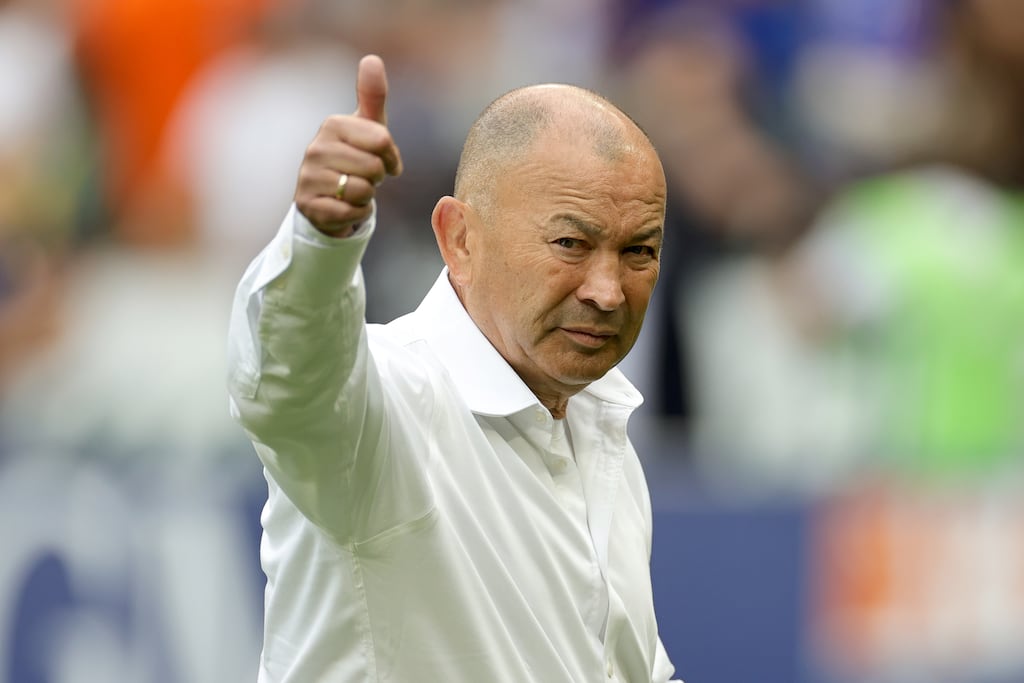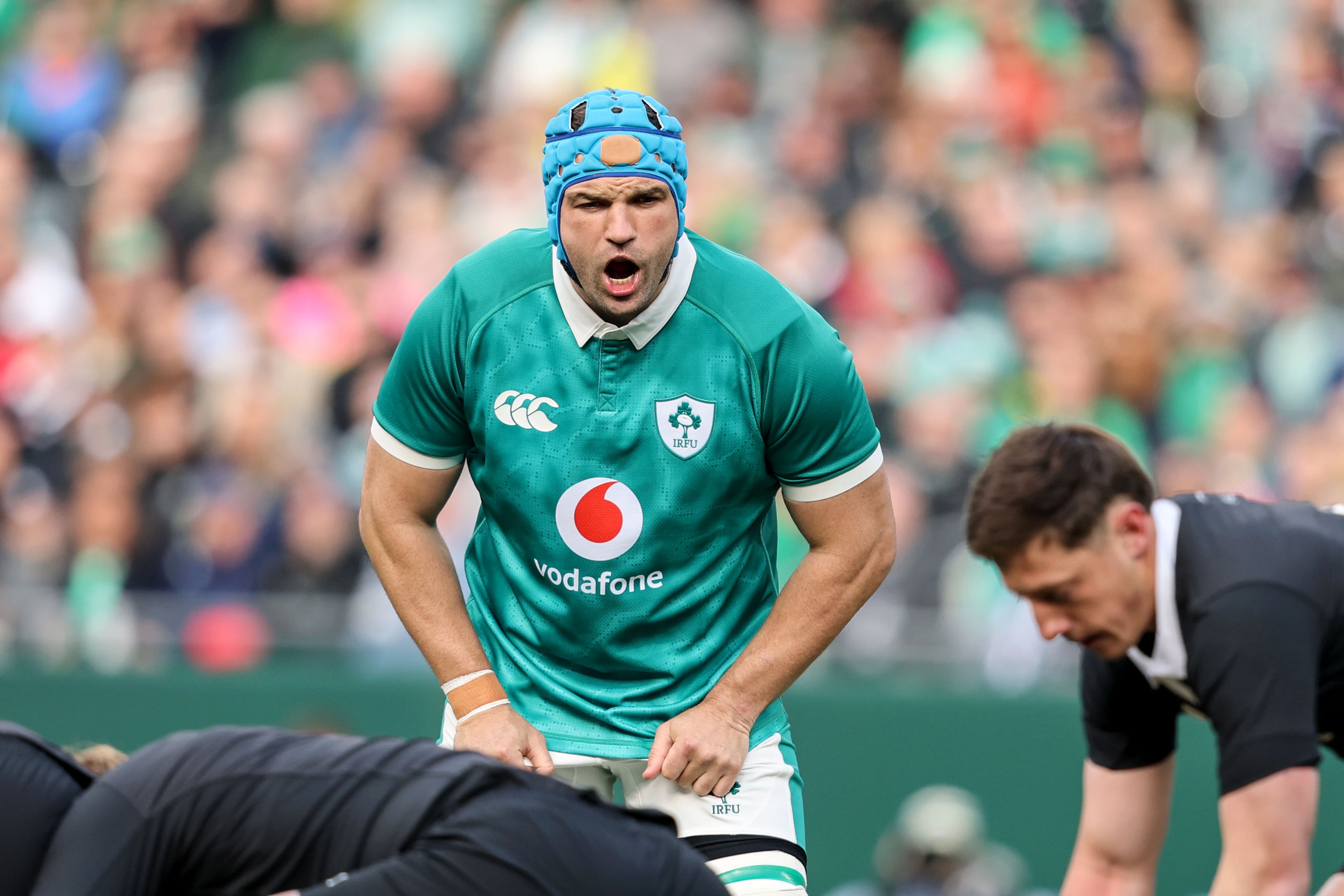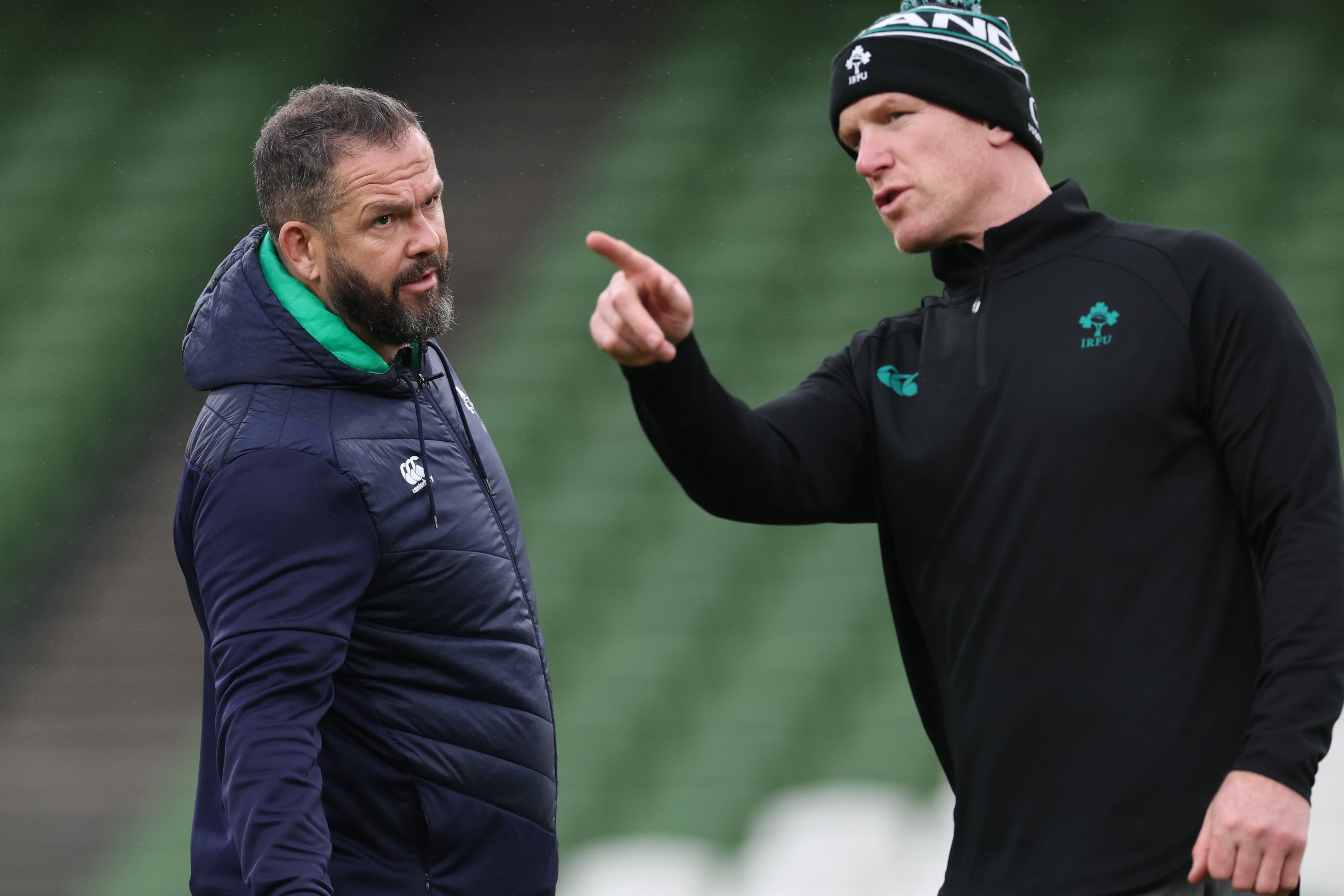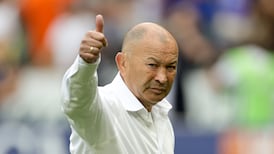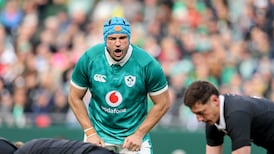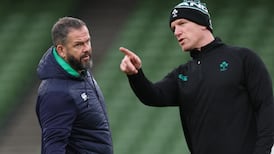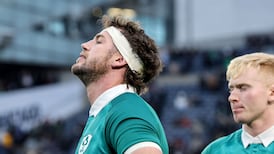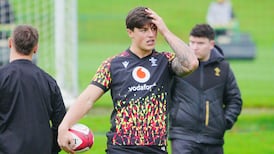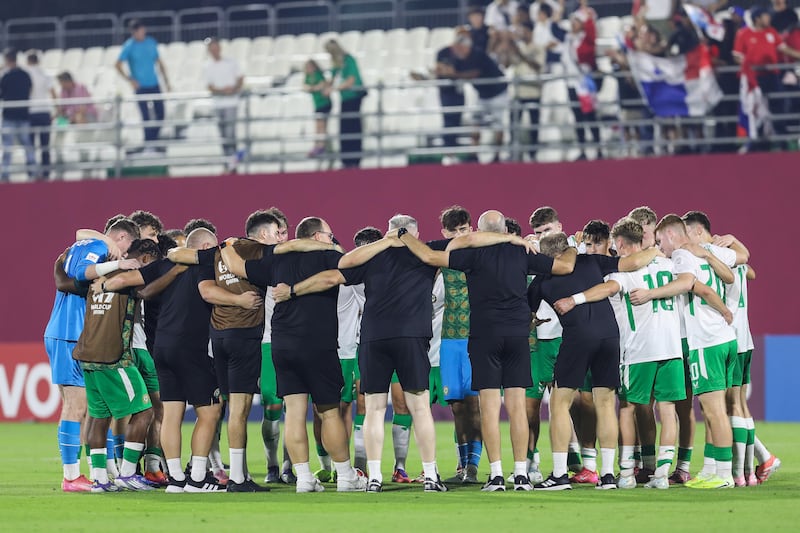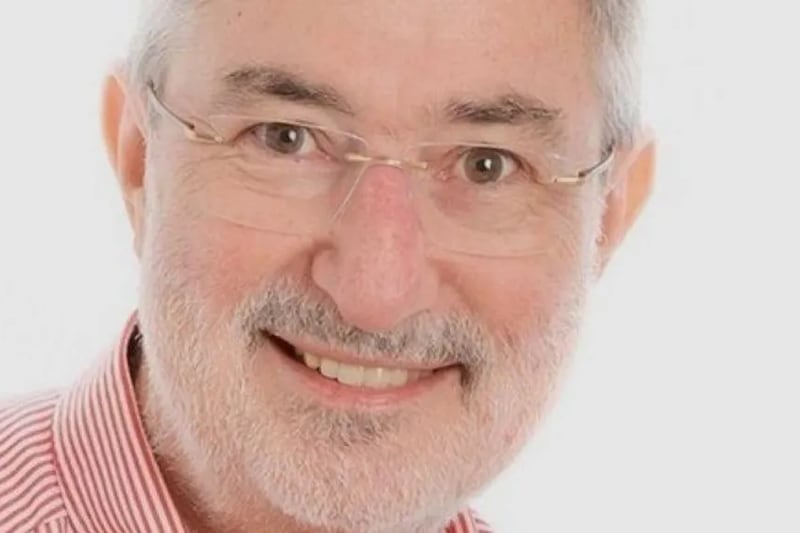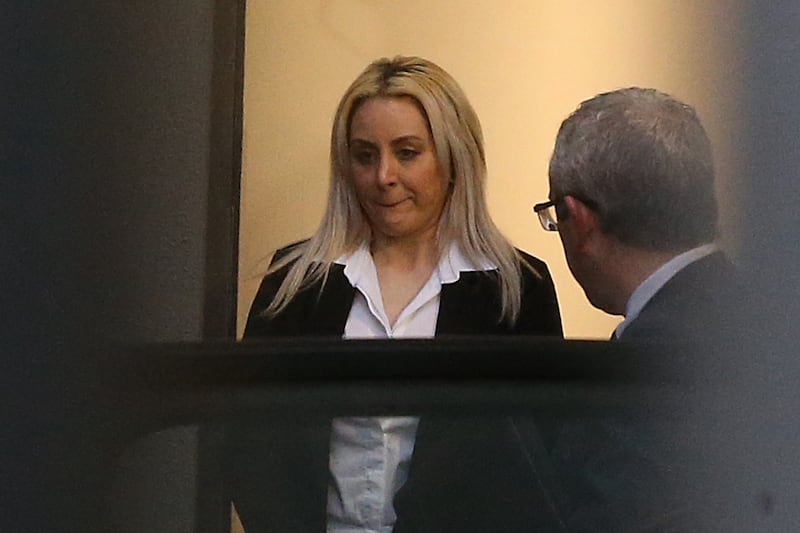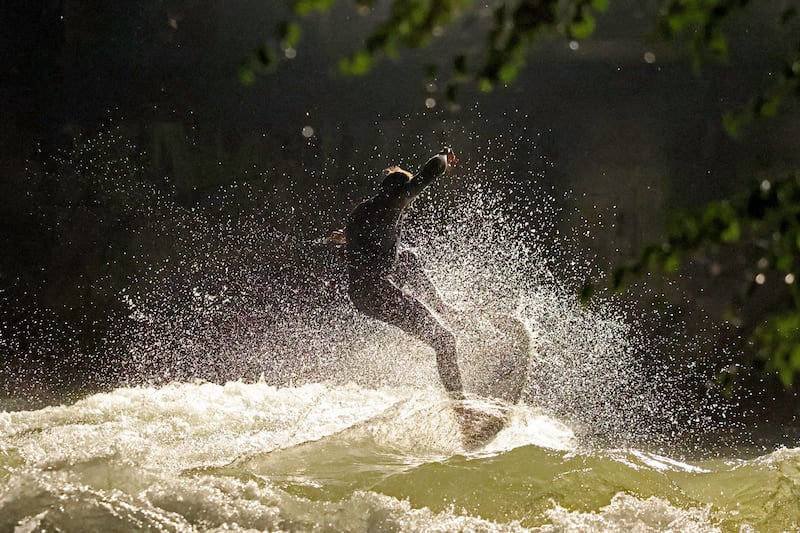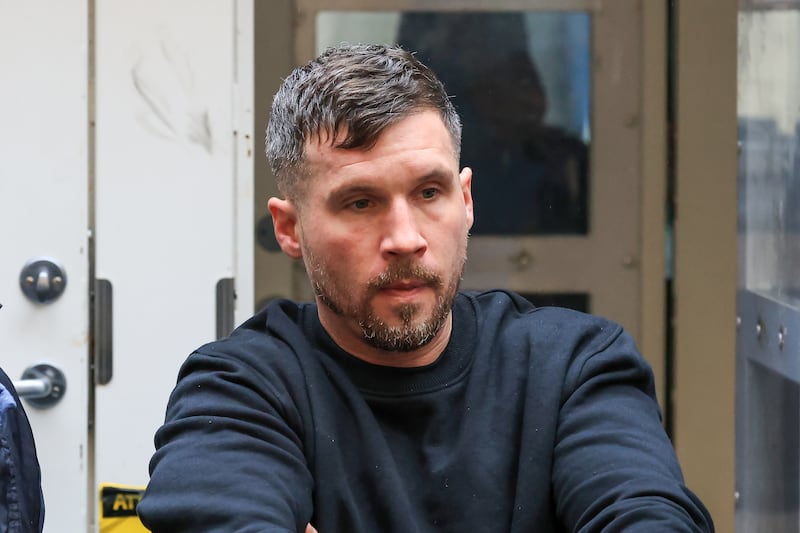Eddie Jones is a funny one. A few years back when he was with England, he won world Rugby Coach of the Year, an award that looked like a crowning achievement, walked like a crowning achievement and quacked like a crowning achievement. Jones has always traded as an outsider though.
On the night, dickied up for the delectation of a black-tie audience in Monte Carlo, he bristled against the cosiness of it all. “I must admit I feel a bit embarrassed,” he said. “We’re not the number one team in the world. I think Steve Hansen should be up here but someone has judged it another way.”
The interviewer battled gamely on and asked him what he might do with the award. “I think my dog will play with it,” Jones replied.

A big weekend for Ireland’s emerging rugby talent
In the popular imagination, that’s who Jones is. Spiky, sharp of tongue, a slave to the one-liner. Never afraid to be just that little bit more unsettling than people are comfortable with. As famous for the things he says as for the teams he produces. His shtick is well worn at this stage.
READ MORE
But shtick never designed a play or won a match or paid a bill. And Jones has been doing all of those things and more for most of rugby’s professional era. Nobody could have survived at the elite tier of the game for as long as Jones has, staying as relevant as he has, if all he did was crack jokes and dish out abuse.
In the history of Test rugby, nobody has coached more international matches than Jones. When he leads Japan into Lansdowne Road this weekend, it will be his 215th match as a head coach, which puts him 11 clear of Warren Gatland, with everyone else an ocean back.
Nobody has won more, either. He has been in charge for 133 Test victories. He is unique in world rugby in that he holds the record number of wins as head coach for two different countries, Japan and England (the latter jointly with Clive Woodward). For good measure, he’s third on the all-time Australian list behind Robbie Deans and Bob Dwyer.
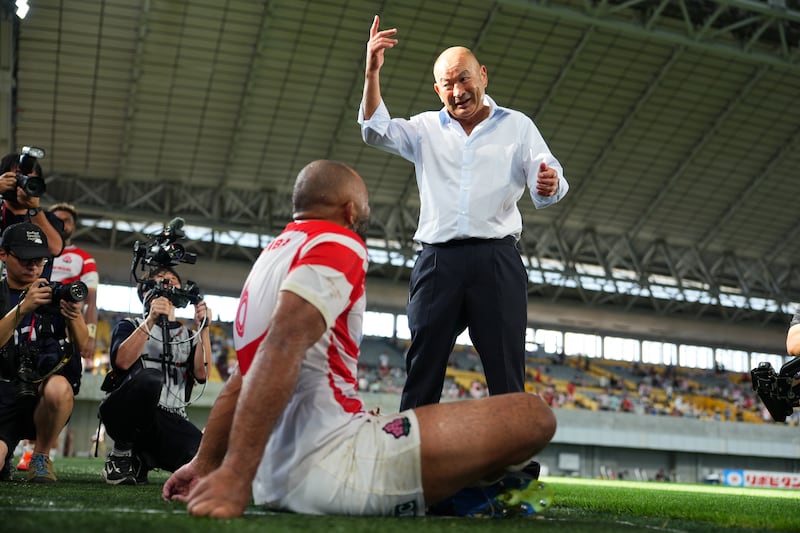
He’s been doing this now at international level since July 2001. For a sense of how long that is, maybe put it this way – 12 of his 38-man Japan touring squad had yet to be born when Jones coached his first international game. He has selected players for Test matches who were born as far back as 1967 and as recently as 2004.
Jones has had two stints with Australia, two with Japan and one with England. He’s won a Grand Slam, a Tri-Nations and three Six Nations. He coached two different countries to World Cup finals 16 years apart and was a technical adviser to the world champion Springboks in 2007. Rarefied air.
For all that, the Japanese thread to his story is easily the most interesting. Jones has never been just a gun for hire with the Brave Blossoms. His family history is deep and knotted and complicated but at so many turns, it has been influenced by Japan.
His mother Nellie grew up in California to Japanese parents in the 1920s. The family ran an orchard in Sacramento and lived an idyllic, sun-strewn life until Japan bombed Pearl Harbor in 1941. Nellie and the rest of her family were interned along with 120,000 other Japanese in the US, rounded up and imprisoned until the end of the war.
So embittered was Nellie’s father by the experience that they never went back to California. When the war was over, he moved them back to Japan. Nellie was in her early 20s and spoke perfect English so she got work as a translator. That’s how she came to meet an Australian soldier called Ted Jones. They fell in love and by 1951 had moved to Sydney where they had four kids, the last of them arriving in 1960.
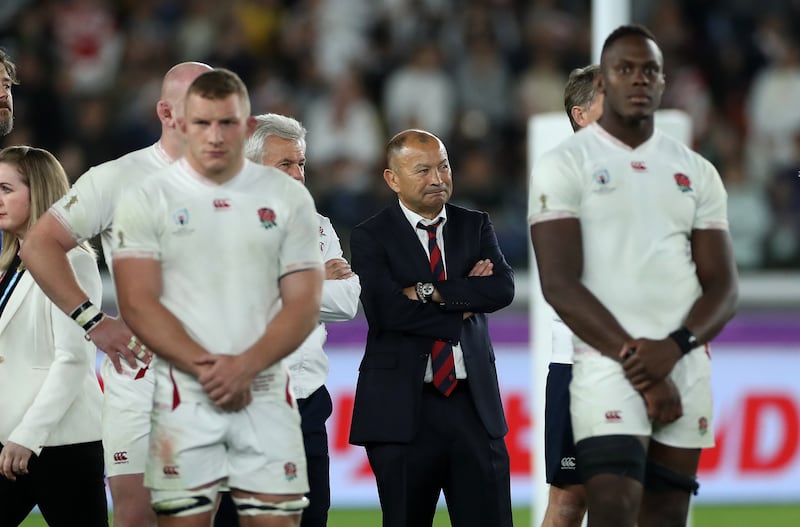
Through it all, the theme of being an outsider is a constant. Nellie’s family were Japanese immigrants in California. When they moved back to Japan, Nellie found it hard being essentially an American girl trying to assimilate into a new country. When she and Ted started a family in Sydney, their kids were teased for being Japanese rather than Australian.
But Japan was always there. When Eddie Jones grew up and started work as a geography teacher, he met his wife Hiroko as she was teaching Japanese in the same school as him in Sydney. His first professional rugby coaching job offer came from Tokai University in Tokyo in 1996, leading him and Hiroko and their two-year-old daughter Chelsea to Japan.
The 18 months they spent there completely changed Jones’s life. He went from seeing himself as a teacher who coached rugby to a rugby coach who could always fall back to teaching if it didn’t work out. He unlocked more of his Japanese identity too, learning about life and society and cultures in a way he never would have back in Australia.
“That was the first time I felt there was another part of me,” he said in an interview once. “It reinforced my work ethic. Everyone knows the way Japan rebuilt itself after the second World War. It just further convinced me that to do something good you are going to have to work hard. The first six months there was probably the hardest time of my life. Once a foreigner, always a foreigner over there.
“You have to work out the fights you can win and the ones you can’t. The Japanese hate conflict. Australians are quite direct. We like to say what we think and tell people what we think. I had to change that considerably in Japan because it wasn’t going to work.

“Conflict in any organisation is important because from conflict you get creativity. I had to find a different way to generate the right kind of conflict. The Japanese don’t want to have any sort of conflict in front of people, so you can’t do that. You get the person one on one, then you can have conflict.”
It was while he was in Japan coaching at the university that Jones first linked up with the national side. His childhood friend Glen Ella was the backs coach for the Cherry Blossoms at the time and recommended Jones as the forwards coach. He did both jobs for a couple of seasons before returning to Australia where he would coach the Brumbies, eventually taking over the national team after the 2001 Lions series.
But though the peripatetic life of a pro rugby coach took Jones all around the world, Japan always had some measure of elastic attached to him. After various adventures (and misadventures) in Australia, England and South Africa throughout the 2000s, Jones went back to Japan in 2009 to coach Tokyo club side Suntory Sungoliath. By 2012, he was the head coach of the national team, with the aim of making a splash at the 2015 World Cup.
In many ways, it was the pivotal job of his coaching career. Jones had become a mostly forgotten figure, working away in a Japanese backwater, far down anyone’s list when the big jobs came up. But he spent three years changing their lives and his, masterminding the incredible win over South Africa in Brighton in 2015 and earning himself the England job in the process.
Those three years with Japan ultimately didn’t bring any significant trophies but it is still arguably the greatest feat of coaching he’s managed in his 30-year career. He took a team that was used to losing, that wasn’t big in stature, wasn’t fit, that had, by its own admission, no real leadership skills and made them shock the world.
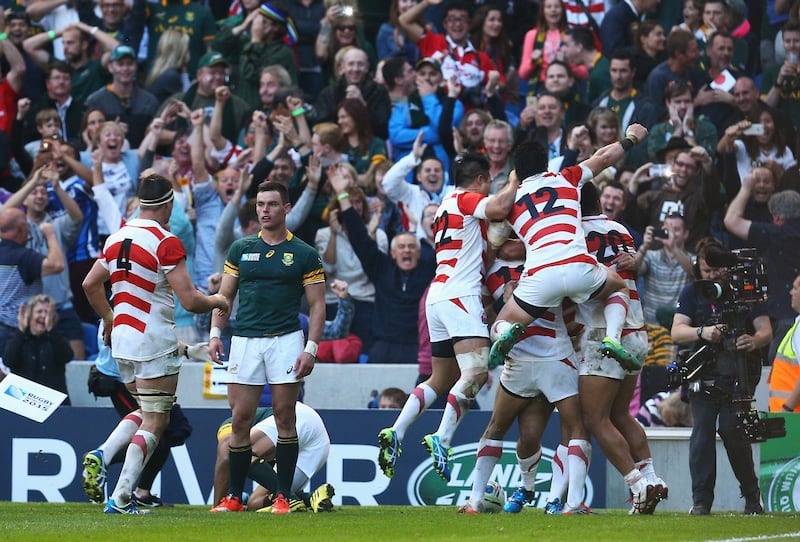
“I couldn’t accept that they had no leadership skills,” he said in Mike Colman’s excellent biography Eddie Jones: Rugby Maverick. “They said it was a cultural thing but I couldn’t accept it. How can one nation that after World War II was an absolute mess and rebuilt the country to be one of the powerhouses of the world have no leadership skills?
“So what we did was create situations to develop leadership. We’d set up a team meeting in a nice room. We’d have a video camera in each corner and the coaches wouldn’t turn up and we’d see what happened. We’d see who took charge, who ran the meeting. We’d set up training session where the coaches wouldn’t turn up and the players would have to lead. We kept disrupting the environment and developing opportunities for players to lead, and they did.”
Beating the Springboks in 2015 led to the England job, which led to a second World Cup final defeat, which led to a disastrous second spell in Australia, which has led back to the here and now with Japan. He has always found his way back.
His second stint has been fine without being particularly eye-catching. When Japan beat Wales earlier in the summer, it didn’t really count as a shock, so low have Welsh fortunes fallen. They gave Australia plenty of it in Tokyo a fortnight ago but got tonked by South Africa at Wembley last Saturday.
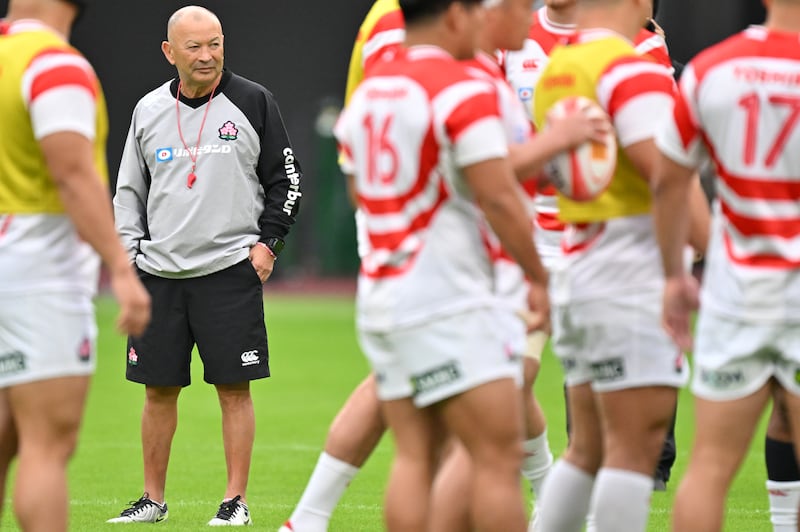
For Jones, this lunchtime fixture will be his a 12th time coaching a team against Ireland, 23 years almost to the day since his first one. Though he lost with Australia that day, his record is eight wins from 11 games, all with either the Wallabies or England. His Japan team are massive outsiders this weekend but he has never minded that in the past and isn’t likely to start now.
So on he goes. Predictably enough, he landed in Dublin with a bit of chum in the water for the media, his contribution to Brendan Fanning’s book Touching Distance leading to questions at Thursday night’s press event. In it, he quoted Carlo Ancelotti’s line about “the thing that gets you hired is what will get you fired” and said it would apply to Andy Farrell when the time comes.
He didn’t shrink from it at all when questioned – instead, he leaned into it and explained his thinking in plenty of detail, shot through with a wry smile.
[ Eddie Jones: ‘The change in Irish rugby has been extraordinary’Opens in new window ]
Divisive and annoying. Respected and enduring. Impossible to ignore.
Eddie Jones to the last.
